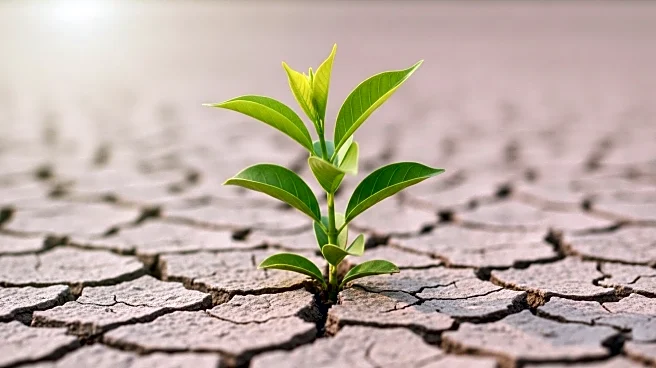What's Happening?
The Australian government has announced a new emissions reduction target for 2035, aiming to cut emissions by 19 to 24 million tons annually. This target is part of a broader effort to align with international goals to limit global warming to 1.5 degrees Celsius. The announcement comes amid criticism from climate scientists and environmental groups who argue that the target is insufficient to prevent significant climate impacts, such as the potential death of the Great Barrier Reef at 2 degrees of warming. Climate Change and Energy Minister Chris Bowen defended the target as ambitious yet achievable, despite concerns that it may not fully align with the necessary global reductions.
Why It's Important?
The new emissions target is crucial for Australia's role in global climate efforts, as it reflects the country's commitment to reducing its carbon footprint. The target has significant implications for various sectors, including energy, transportation, and heavy industry, which will need to adapt to meet these goals. The decision also highlights the tension between environmental advocacy groups seeking more aggressive action and the government's approach to balancing economic and environmental priorities. The outcome of this policy will impact Australia's international standing and its ability to contribute effectively to global climate change mitigation.
What's Next?
Australia will need to implement substantial changes across its economy to meet the 2035 emissions target. This includes accelerating the closure of coal-fired power stations, increasing investment in renewable energy sources like solar and wind, and enhancing infrastructure for energy storage and transmission. The government faces political challenges, as opposition parties and some environmental groups criticize the target's ambition. The success of this policy will depend on the government's ability to navigate these challenges and foster collaboration across sectors to achieve the necessary emissions reductions.
Beyond the Headlines
The announcement raises ethical questions about the balance between economic growth and environmental responsibility. It also underscores the cultural shift required to prioritize sustainability in policy-making. Long-term, the target could drive innovation in green technologies and reshape Australia's energy landscape, potentially influencing global trends in climate policy.











